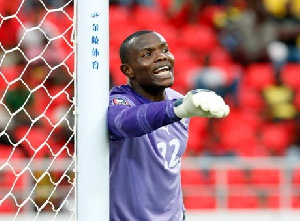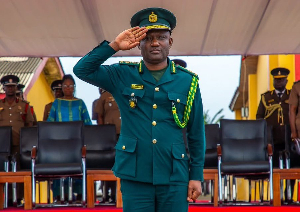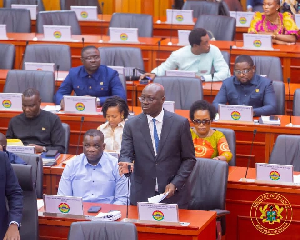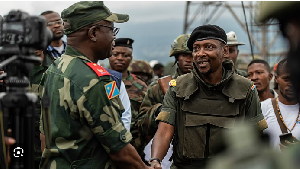Mixed feelings among Cup players
You know things are a little different when a footballer tells you he's been missing the media - and at any Nations Cup, things tend to be different.
After 10 days or so holed up in Cabinda, with such heavy security following the Togo disaster that the players only ventured out for training, Ghana goalkeeper Richard Kingson was giddy to be elsewhere.
"I'm very happy to be here, seeing beautiful people like you and my countrymen, because in Cabinda there was nothing," the Wigan man told me here in Luanda, as though he'd been at the bottle.
And his intense wish to stay in the capital was granted when the Black Stars, despite missing key men and fielding several youngsters, reached the quarter-finals when beating Burkina Faso 1-0.
Richard Kingson played in all of Ghana's games at the 2006 World Cup finals
Ghana now meet hosts Angola in the first of Sunday's quarter-finals (Ivory Coast vs. Algeria following hours later), and Kingson and co. can only hope for better training facilities ahead of the game.
Last week, Malawi protested to the Confederation of African Football (Caf) over twice being refused access to a training pitch ahead of their clash against Angola (which the Flames lost 2-0) - this week, Ghana trained on a pitch lacking any goals.
"It was very embarrassing that at a tournament like this we had to train without goalposts," Kingson added.
Yet there was good reason for this.
Even though Caf had given Ghana the nod to train at Luanda's 11 November stadium, the British groundsmen tending the pitch refused to let them do so - for the turf that will stage the final not only cuts up very easily but has already come in for heavy criticism.
But the pitch would have been worse had the head groundsman here not been the first man in, one assumes, a very long time to stand up to Angolan President Jose Eduardo dos Santos prior to the finals.
For after much (literally) on-field argument, George Mullan, whose company had laid turf at Real Madrid's Bernabeu, successfully barred yet another dress rehearsal of the opening ceremony for fear of further damage.
Mali's Seydou Keita claimed the surface was dangerous and a far cry from what he's used to with Barcelona - but for dozens of Africans playing in Europe, this hasn't been the only difference in Angola.
Although the contrasts between the two continents are obvious and most players here still need time to adapt - some are finding it more difficult than others.
"As footballers, we need our sleep, the right food and to train properly but this doesn't always happen in Africa," says Geremi. "It's okay for me because I grew up in Cameroon so am used to the challenges, but for players born in France or elsewhere it can be very difficult."
That was the case for Algeria in their opening 3-0 defeat by Malawi, for coach Rabah Saadane - seeking to rest his players after a draining qualifying campaign - opted for no friendlies ahead of the tournament.
Which meant his team, many of whom were born in France to Algerian parents, failed to adapt to Angola's humidity and heat after coming from the big freeze in Europe.
Another challenge for those coming from Europe is the contrast in quality of their team-mates - with some leading lights lining up alongside much weaker compatriots.
Take Benin's Stephane Sessegnon, whose Paris Saint-Germain displays are attracting some of Europe's top clubs but whose midfield team-mates play in Bahrain, Libya and the French second division and lower.
This affects the quality of football on offer - as does Caf's decision that group rivals finishing level on points are ranked by the sides' head-to-head result.
This led to Monday's farce when Angola and Algeria revived memories of the infamous 1982 World Cup match between Germany and Austria which, ironically, eliminated the North Africans from the finals.
That game, which saw the European sides knocking the ball around with no intention of scoring after the 'right result' (a 1-0 German win) was assured, prompted Fifa to ensure that all final group matches were then played simultaneously.
Furthermore, World Cup group games retain their interest right to the last since they are decided by goal difference if teams are level.
When I asked Saadane about the Malians' protest that Angola and Algeria had showed next-to-no desire to score in a result which suited both sides, he almost laughed his bald head off - simply saying that Caf must change its rules.
One hopes they will, but the problem is that Caf tends to move at the same speed as the traffic in Luanda's sandy streets - glacially.
Sports News of Friday, 22 January 2010
Source: Piers Edwards for BBC













